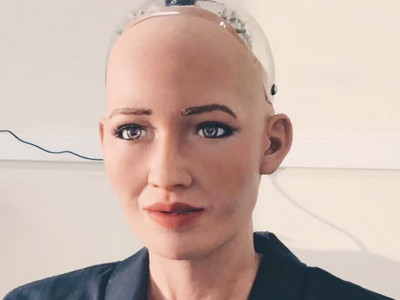19 Skills Employees Will Need In The Next Five Years
19 Skills Employees Will Need In The Next Five Years

From digital literacy to adaptability and emotional intelligence, employees will require some core skill sets to thrive over the next five years. Here, Forbes Human Resources Council members share the skills they foresee being pivotal in the near future, along with the most effective ways to foster growth and learning within your organization.
1. Adaptability
Adaptability will be an essential workforce skill in the next five years as industries and technologies continue to evolve. Companies can support this by investing in ongoing learning programs and fostering a culture that values growth, experimentation and collaboration. Doing this will create a foundation for employee satisfaction and retention, ensuring a self-sustaining and motivated team. - Adam Wray, AstrumU
2. Data Storytelling
Data storytelling will be a critical skill in the next five years. As companies collect vast amounts of data, employees who can transform complex analytics into compelling narratives will drive better decision-making. Organizations should invest in training for data visualization tools and storytelling techniques to bridge the gap between insights and action. - Tia Smith, Cognizant
3. AI Literacy
As artificial intelligence (AI) becomes increasingly integrated into our workforce, AI literacy will be an essential skill for employees, especially in tech-driven industries such as digital banking. Companies can promote hands-on experience with AI tools, establish AI as a core competency and foster a culture of innovation to integrate opportunities for upskilling into their organizations. - Julie Hoagland, Alkami
4. Cognitive Flexibility
Cognitive flexibility will be a defining skill as industries and technologies evolve. Employees must adapt, anticipate and lead change. Companies must invest in cross-functional learning and AI-driven training that push employees to think creatively and pivot quickly. Leaders must cultivate a culture of continuous reinvention, where adaptability and agility are the norm, not the exception. - Katrina Jones
5. 'Learn To Learn'
The ultimate skill is "learn to learn." In an evolving world, skill obsolescence is accelerating—particularly with the rapid integration of AI and other transformative technologies. To thrive in this landscape, employees must develop the ability to quickly adapt, acquire new knowledge and apply it effectively. This meta-skill empowers individuals to stay relevant regardless of industry changes - Philippe Riveron, Edflex
6. Inquisitiveness
Inquisitiveness will be needed in the next five years. The value companies will realize from AI hinges on employees’ ability to ask the right questions. Honing your workforce’s critical thinking skills and fostering a culture of lifelong learning will enable your organization to adapt and thrive in times of change. But don’t rely on a one-size-fits-all approach to upskilling—make a plan for every person. - Shannon Gabriel, TBM Consulting
7. Digital Curiosity And Adaptability
One critical skill the workforce will need in the next five years is digital curiosity and adaptability—the ability to effectively learn, adapt and work with new and emerging technologies. As advancements in artificial intelligence, automation and data analytics continue to accelerate, workers will need to be trained and upskilled on the evolving tools, workflows and digital platforms. - Gordon Pelosse, AICerts
8. Resilience
With mental health challenges on the rise, companies are wise to place an increasing emphasis on the development of skills that promote resilience and the ability to adapt to rapid and complex change. In an era where burnout is commonplace, prioritizing the workforce's mental wellness pays off in big ways by positively influencing engagement and retention and increasing productivity and morale. - Jennifer Rozon, McLean & Company
9. Soft Skills
Soft skills, such as adaptability and problem-solving, are a major focus for hiring managers and company leadership because employees with strong soft skills have greater versatility and can better navigate our work environment's constant change. Businesses must prioritize soft skill upskilling programs to build both their resiliency and ability to capitalize on opportunities in the market. - Nicky Hancock, AMS
10. Change Management
I think that one skill everyone has to master is managing change, and despite the volatility, uncertainty, complexity and ambiguity we are all witnessing, there is no change in what we teach and the way we teach even today, and education has become a big black box. Apt is the quote, “If in the last few years, you haven’t changed a major opinion or a strongly held view, check your pulse; you may be either dead or on the way to being so.” - Ashutosh Labroo, BinDawood Holding
11. Communication
Communication is evergreen, even with the rise of GenAI. Knowing how to engage different team members, personas, technologies and the like will serve to keep the organization aligned no matter the circumstances. Companies can start now by considering existing strengths and any gaps that need closing. - Caitlin MacGregor, Plum
12. Critical Thinking
The workforce is going to experience an increased need for critical thinking skills in the coming years. With the increased use of AI tools and automation, workers will need a new ability to effectively evaluate the integrity of outputs and to shape questions that optimize the ability of these tools to add value. - Dave Barnett, DeVry University
13. Upskilling And Reskilling
The ability to upskill and reskill is the skill that everyone needs today and in the next five years. The only constant in our world is change. AI is exponentially increasing the pace of changes. Our ability to unlearn, pivot, be flexible and learn new skills on an ongoing basis is a must. The world is changing all around us, and we must change and evolve with it. - Oksana Lukash, People, Culture, You
14. Machine Learning
The ultimate skill relates to the ability to work with machines. In legal proceedings, machines can review case documents and develop summaries, whereas humans can analyze these summaries and draw conclusions. Companies can invest in repurposing their workforce where, for example, customer service agents work in business analysis, reflecting on their deep understanding of the customers and their needs. - Helal Hamdanieh, PwC
15. Emotional Intelligence
Emotional intelligence (EQ) will be essential as automation takes over more routine tasks. As machines handle data, humans must focus on what they do best—building relationships and fostering empathy. Companies can invest in EQ workshops, coaching and team-building activities to help employees navigate complex emotional dynamics and collaborate effectively with AI tools in the workplace. - Laura Spawn, Virtual Vocations, Inc.
16. Epistemic Curiosity
Epistemic curiosity is a pivotal skill now and going forward. Curiosity powers innovation, collaboration, critical thinking, agility and problem-solving. In research discussed by Harvard, curiosity is associated with better job performance. HR leaders can foster workforce curiosity by creating a culture of continuous learning, encouraging a growth mindset and supporting a fail-forward environment. - Laci Loew
17. Technological Know-How
Technology continues to change how we do business on a daily basis, and AI will shape how individual roles are structured. Upskilling and reskilling the workforce to keep them up to date with new technologies shows you care for them as a person and want them to grow within the company, not grow out of it. - Niki Jorgensen, Insperity
18. Interpersonal Interactions
Ensuring that the workforce has been trained in interpersonal interactions is important. With working remotely and the pandemic challenges, many people do not fully understand how to work in a team setting and communicate effectively. From team building to written communications, companies can invest in soft skills to ensure their workers are as effective and efficient as possible. - Erin ImHof, CertiK
19. Grit, Learning Agility And Good Judgment
To thrive like a tree with strong roots and a healthy crown despite damaging winds, the workforce today needs a combination of skills: Grit, so we have the perseverance and passion to navigate through challenges; learning agility, to keep re-learning the right things; good judgment, which builds decision-making on good reasoning and wisdom; finally, the ability to connect the dots to make sense of the world. - Gonca Icoren, Energy Vault Inc.








